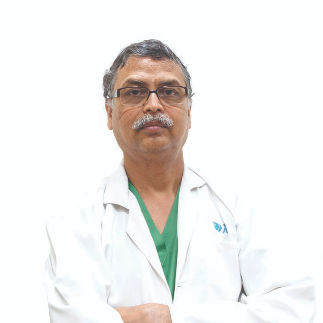Chemotherapy Information Guide: Everything You Need To Know!
Understand chemotherapy with insights into its types, uses, side effects, and tips to prepare for treatment and improve patient outcomes.

Written by
Last updated on 3rd Jul, 2025
Chemotherapy is a cancer treatment that uses powerful chemicals to kill fast-growing cancer cells in the body. Chemotherapy has been a standard treatment of cancer, often combined with other therapies, including surgery and radiation therapy.
Chemotherapy has an origin tracing as far back as the early 20th century, when derivatives of mustard gas were found to affect cancer cells. This research resulted in the creation of the first chemotherapy drug in the 1940s. Since then, millions of people have received chemotherapy, and over the years, better and more targeted treatments have been developed. The outcomes of chemotherapy patients have improved tremendously.
Chemotherapy works by disrupting the growth and division of cancer cells. It derails the cell cycle, the process by which cells replicate and spread. Chemotherapy is designed to target cancer cells, but it can also adversely impact healthy cells that divide rapidly. This includes cells present in the digestive tract, hair follicles and bone marrow. This is why side effects are a common aspect of treatment.
Types of Chemotherapy
Different types of chemotherapy are developed to attack cancer cells in different ways. Now, chemotherapy drugs are classified according to their mechanism of action and the types of cancer they treat. Here are the major types:
Alkylating agents
Alkylating is among the first types of chemotherapeutic drugs. Chemotherapy drugs work by killing cancer cells, stopping them from reproducing by damaging their DNA. These drugs work well against slow-growing cancers like lymphoma and certain types of leukaemia.
Antimetabolites
Antimetabolites are agents that resemble the natural substances in the body and act by affecting the production of DNA and RNA. They stop cancer cells from using nutrients that they require to proliferate. This type of chemotherapy is typically used to treat breast cancer, ovarian cancer, and gastrointestinal cancers.
Anti-tumour antibiotics
Anti-tumour antibiotics are derived from natural sources, such as certain bacteria, and are intended to disrupt DNA replication. These drugs are commonly repurposed in treating leukaemia and other blood cancers. But they can also affect the heart, which means that when patients are treated, they need to be observed carefully.
Plant alkaloids
Plant alkaloids are obtained from plants and interfere with the mitosis of cancer cells, thus preventing the malignant cells from dividing. These drugs are used to treat multiple cancers, including lung cancer, breast cancer, and Hodgkin’s lymphoma (a type of cancer developed in the lymphatic system). Vincristine and paclitaxel are two examples.
Uses of Chemotherapy
Chemotherapy can be tailored to meet specific treatment goals, which vary depending on the type and stage of cancer. Its applications could be curative or palliative, making it a versatile tool for cancer treatment.
Curative therapy
Chemotherapy can be used as a standalone treatment or in combination with other therapies to eliminate cancer completely. This is known as curative therapy, and the goal is to achieve long-term remission.
Control therapy
When a complete cure is not possible, chemotherapy can be used to control the growth and spread of cancer. In such a case, it has the goal of preventing the disease from going forward. By slowing the progress of cancer, control therapy helps to prolong life and maintain a better quality of life for patients.
Palliative therapy
In late-stage cancer, chemotherapy can alleviate symptoms and promote comfort. This is known as palliative therapy, and it aims to improve the patient’s well-being rather than cure the disease.
How is Chemotherapy Administered?
The administration of chemotherapy depends on the type of cancer, the drugs prescribed, and the patient’s overall health. There are several methods to deliver chemotherapy, each with its own advantages.
1. Oral chemotherapy
Oral chemotherapy involves taking medication in pill or liquid form. Patients can conveniently take their treatment at home, making it a flexible option.
Advantages
Reduces the need for regular hospital visits
Patients are able to maintain a proper lifestyle.
Considerations
Patients must follow the assigned schedule strictly for better efficacy.
Regular follow-ups with healthcare providers are necessary to monitor progress.
2. Intravenous (IV) chemotherapy
Intravenous IV chemotherapy is the most common method of administration. Drugs are injected directly through a vein into the bloodstream.
Advantages
Provides quick and efficient dissemination of medication through the body.
Suitable for various chemotherapy drugs.
Considerations
Often conducted in a clinical environment in the presence of medical supervision.
Patients can have temporary discomfort or irritation at the injection site.
3. Topical chemotherapy
Topical chemotherapy is applied directly to the skin in the form of creams or lotions.
Advantages
Ideal for treating specific types of skin cancers.
Localised application minimises systemic side effects.
Considerations
Patients must follow the application instructions carefully to achieve optimal results.
This method is limited to cancers affecting the skin and is not suitable for internal malignancies.
Side Effects of Chemotherapy
Chemotherapy kills cancer, which is very effective, but it often comes with side effects due to its impact on healthy cells. Understanding these side effects and their management can help patients navigate the treatment process more effectively.
1. Common side effects
Some of the common side effects of chemotherapy often include:
Nausea and vomiting
Hair loss
Loss of appetite
Fatigue
Change in skin and nails
2. Long-term side effects
Some side effects may persist even after treatment has ended. These include:
Fertility issues
Heart and lung problems
Increased risk of secondary cancer
3. Managing side effects
Controls for side effects include medications, adjustments in lifestyle, and supportive care in the shape of familial support, counselling or support groups. For example, wigs or scarves can help patients deal with hair loss, whereas anti-nausea drugs can help manage gastrointestinal symptoms.
Preparing for Chemotherapy
Preparation is one of the most important steps toward making chemotherapy as effective and tolerable as possible. Patients should collaborate with their healthcare team to understand what to expect and how to prepare physically and emotionally.
Pre-treatment evaluations
Before chemotherapy begins, patients undergo thorough evaluations that may include blood tests, imaging scans, and organ function assessments. These tests help doctors determine the most suitable treatment plan.
Adjusting lifestyle habits
Maintaining a healthy lifestyle can enhance the effectiveness of chemotherapy. Patients are encouraged to incorporate a balanced diet, stay hydrated, and take part in in light physical activity as tolerated.
Emotional and psychological preparation
Chemotherapy can be emotionally challenging. Patients may benefit from counselling, support groups, or speaking with loved ones to prepare mentally for the journey ahead.
Monitoring and Follow-up
Chemotherapy treatment requires monitoring and follow-up care. These steps help to track that the therapy is working well and address any complications or side effects.
Tracking treatment response
Doctors monitor how well the cancer is responding to chemotherapy with frequent imaging scans and blood tests. This aids in determining the efficacy of the drug and in making tweaks as needed.
Importance of regular follow-up
Follow-up appointments are crucial for the detection of any recurrence of cancer and also for addressing any side effects. These visits are mostly for updating about the status, and patients can also get counselling and additional advice from healthcare providers.
Assessing potential complications
Regular monitoring allows for the early detection of complications, such as infections or organ damage, which can arise from chemotherapy.
Complementary and Alternative Therapies
Alternative and complementary therapies may aid in managing the side effects of chemotherapy. Though they cannot take the place of standard treatment, they might relieve side effects and enhance general well-being. Patients often seek out dietary supplements that claim to strengthen their immune system during chemotherapy. However, consult a doctor before taking any supplements because they can interfere with chemotherapy drugs. Mind-body practices such as yoga, meditation, and acupuncture can reduce stress and improve well-being during chemotherapy. They are often used along with conventional treatments.
Conclusion
Chemotherapy is still one of the most potent weapons against cancer. It has its fair share of challenges. However, it gives millions of patients hope and healing. Although chemotherapy is still a mainstay in the treatment of cancer, continuing research is causing the development of more targeted therapies with fewer adverse effects. This evolution is helping to deliver better patient outcomes. These initiatives will hopefully lead to more efficient and personalised care for future patients.
Consult Top Oncologists
Consult Top Oncologists

Dr. Tarun Jindal
Uro Oncologist
14 Years • MS (AIIMS, New Delhi), MCh (Gold Medalist), Fellow, VUI, Henry Ford Hospital, Detroit, USA; Robotic and Laparoscopic surgeon
Kolkata
Apollo Multispeciality Hospitals , Kolkata, Kolkata
(100+ Patients)

Dr. Sandeep Muzumder
Radiation Specialist Oncologist
21 Years • MBBS (JIPMER, Pondicherry), MD (AIIMS, New Delhi)
Bhubaneswar
Apollo Hospitals Old Sainik School Road, Bhubaneswar

Dr. Ganesh Chandra Subudhi
Medical Oncologist
16 Years • MBBS, MD- General Medicine. DrNB- Medical Oncology (DNSH, Delhi ). Consultant - Medical Oncology at Apollo Cancer Centre, Bhubaneshwar.
Bhubaneswar
Apollo Hospitals Old Sainik School Road, Bhubaneswar

Dr. Amit Choraria
Surgical Oncologist
18 Years • MBBS, MS (Surgery) Fellow, Surgical Oncology, Tata Medical Center (FSO) Fellow, European Board of Surgery (Surgical Oncology) (FEBS) Fellow, Minimal Access Surgery (FMAS) Fellow, Indian Association of Gastrointestinal Endosurgeons (FIAGES) UICC Fellow, Royal Marsden NHS, London, UK Visiting Scholar, Plastic Reconstructive Surgery, CGMH, Taiwan Fellow, Robotic Surgical Oncology, Vattikuti Foundation, USA
Kolkata
Apollo Multispeciality Hospitals , Kolkata, Kolkata
(50+ Patients)

Dr. Praveen Kumar Garg
Surgical Oncologist
26 Years • MBBS, M.S.(Gen.Surg.), M.Ch.(OncoSurg.)
Delhi
Apollo Hospitals Indraprastha, Delhi
(25+ Patients)
